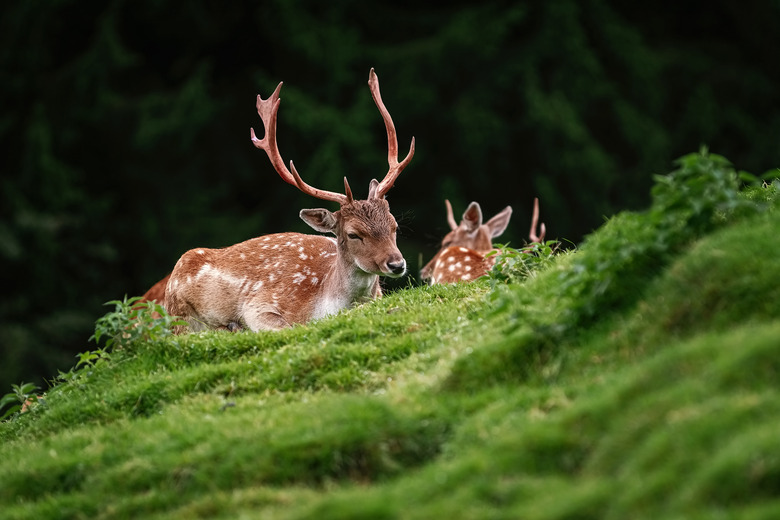What Three Ways Are Animals Important To Plants?
Many gardeners think of animals in their gardens as pests, since many animals eat plants. In reality, some animals can be a nuisance, but plants actually depend on animals for their survival, just as animals and humans depend on plants. In your garden and in the wild, there are key ways in which animals are important to plants.
Background
Background
Plants and animals depend on one another for survival in all of Earth's many habitats. It may be obvious that animals depend on plants; plants release oxygen into the atmosphere and provide shelter and habitat, some animals eat plants and other animals eat the animals who eat plants. It is easier to overlook the benefits that plants get from animals:- pollination, propagation and fertilization.
Pollination
Pollination
Pollination is necessary for plants to create new seeds. Bees, hummingbirds, butterflies and other insects move from flower to flower feeding on nectar. While the bird or insect is feeding, pollen from the flower's stamens stick to it and is then transferred it to another plant's stigma, a sticky area located on top of the pistil.
Propagation
Propagation
Another way that animals help plants is by dispersing their seeds to new territory. Since plants can move their seeds on their own, some have developed adaptations that use animals to spread the seeds. When animals eat the plant's fruit, the seeds move through the animal's digestive system and are eventually dropped in a new location. Some plants produce sticky or barbed seeds that get tangled in an animal's fur and then fall off somewhere else.
Fertilization
Fertilization
Animal manure has been widely used as a crop fertilizer for centuries. Manure from herbivores like cows, horses, poultry and goats adds organic matter, nutrients and microbes to soil. Plants use the nutrients like nitrogen to grow and produce fruit and seeds. Soil microbes are important because they help release the nutrients in the soil, fight diseases that harm plants and clean contaminants from the soil.
Cite This Article
MLA
Roberts, Anna. "What Three Ways Are Animals Important To Plants?" sciencing.com, https://www.sciencing.com/what-three-ways-are-animals-important-to-plants-13404759/. 22 November 2019.
APA
Roberts, Anna. (2019, November 22). What Three Ways Are Animals Important To Plants?. sciencing.com. Retrieved from https://www.sciencing.com/what-three-ways-are-animals-important-to-plants-13404759/
Chicago
Roberts, Anna. What Three Ways Are Animals Important To Plants? last modified March 24, 2022. https://www.sciencing.com/what-three-ways-are-animals-important-to-plants-13404759/
